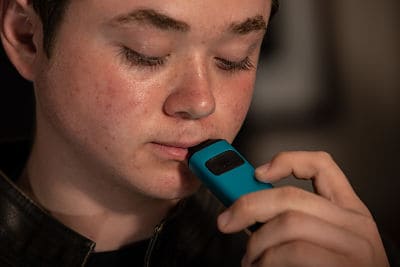 The Chief Executive Officer of Juul Labs, the leading vaping company in the United States, has stepped down amidst a wave of vaping-related illnesses and deaths. The company has also said that it would halt its advertising and not fight a proposed ban on flavored vaping products.
The Chief Executive Officer of Juul Labs, the leading vaping company in the United States, has stepped down amidst a wave of vaping-related illnesses and deaths. The company has also said that it would halt its advertising and not fight a proposed ban on flavored vaping products.
Ads Pulled as Flavored Vaping Ban Proposed
On September 25, 2019, Juul issued a statement that CEO Kevin Burns would be stepping down and that merger discussions have been called off between Altria, the tobacco giant that owns a 35 percent stake in the company, and Philip Morris, the maker of Marlboro cigarettes. Burns has been replaced by KC Crosthwaite, Altria’s Chief Growth Officer.
Juul also announced that it will stop advertising its vaping products in the United States, pulling over $100 million in broadcast, digital, and print ads. Additionally, the company said it would not fight a proposed Trump administration plan to remove fruit- and candy-flavored e-cigarettes from the marketplace until they win approval from the Food and Drug Administration.
Juul’s announcement comes as state and federal health officials are investigating hundreds of cases in which people have been sickened from what appears to be vaping-related lung disease. At least nine people have died and about 530 others have fallen ill in 38 states. Medical experts have also expressed concern about the long-term health effects of vaping.
Young People Reportedly Attracted to Juul’s Flavors, Packaging
Critics have honed in on restricting flavored e-cigarettes in particular because they argue these products overwhelmingly appeal to young people, with such flavors as Bubble Gum, Sour Gummy, Strawberry Milk, and Cotton Candy. For its part, Juul, which controls around 75 percent of the US vaping market, insists that its primary goal is helping traditional tobacco users quit smoking.
But regardless of Juul’s intent, that market now includes over 3.6 MILLION middle- and high school-age children, with more than one in four high school students using e-cigarettes in the last month. In addition to the flavored tobacco pods, these teens may also be attracted to the products’ colorful packaging, clever social media campaigns featuring paid “influencers,” and vaping devices that look like USB flash drives.
Moreover, the sheer number of young people who vape appears to be increasing exponentially, with the National Institute on Drug Abuse (NIDA) reporting that the percentage of vaping teenagers has doubled over the past two years. This represents the largest increase in smoking, drinking, or drug use ever recorded in the United States, leading NIDA Director Nora Volkow to declare vaping “a public health crisis.”
“These products introduce the highly addictive chemical nicotine to these young people and their developing brains, and I fear we are only beginning to learn the possible health risks and outcomes for youth,” said Volkow.
<< BACK TO BLOG POSTS